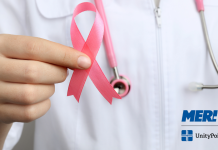(Madison, WI): It’s that time of year again —when respiratory illnesses like cold and flu start to circulate heavily and this year health systems across the state are seeing a steady rise in Respiratory Syncytial Virus (RSV) cases.
25% of all RSV tests run are coming back positive
In Wisconsin, currently 25% of all RSV tests are coming back positive, compared to 1% last year, despite the same number of tests (Wisconsin State Laboratory of Hygiene).
“We’re seeing a percent positivity higher right now than most years see in their peak,” said UnityPoint Health – Meriter Infection Preventionist, Katelyn Harms. “Peak is normally January and February, so we have a long way to go.”
Normal positivity rates for this time of year are between 1-3%.
What is RSV?
RSV is a respiratory virus that infects the lungs and breath passages. Typically, early symptoms for RSV include:
- Runny nose
- Decrease in appetite
- Cough, which may progress to wheezing
When to seek medical care
RSV may not be severe when it first starts, however, it can become severe within a few days of the illness. People should always seek medical care as soon as symptoms present, starting with a primary care doctor. Click here to find a primary care physician.
Typically, RSV can be treated at home similarly to treating cold or Flu. Antibiotics are not a treatment for RSV. Sick people should seek emergency medical care when symptoms worsen, such as trouble breathing, high fever, confusion or dehydration.
Who is affected by RSV?
RSV can be a dangerous infection for infants and young children, those at greatest risk for severe illness include:
- Premature infants
- Infants younger than six months
- Children younger than two years old with chronic lung disease or congenital heart disease
- Children with weakened immune systems
- Children who have neuromuscular disorders, including those who have difficulty swallowing or clear mucus.
While RSV poses the most risk to infants and young children, people 65+ years old and immunocompromised people can also have severe illness from RSV.
How to prevent RSV infection?
RSV transmission is like both Flu and COVID-19. Keep your distance from sick people, wear a mask if you are sick and can’t distance, wash your hands diligently and try to avoid touching your face.
Keep sick children out of schools and daycare to reduce spreading infection.












